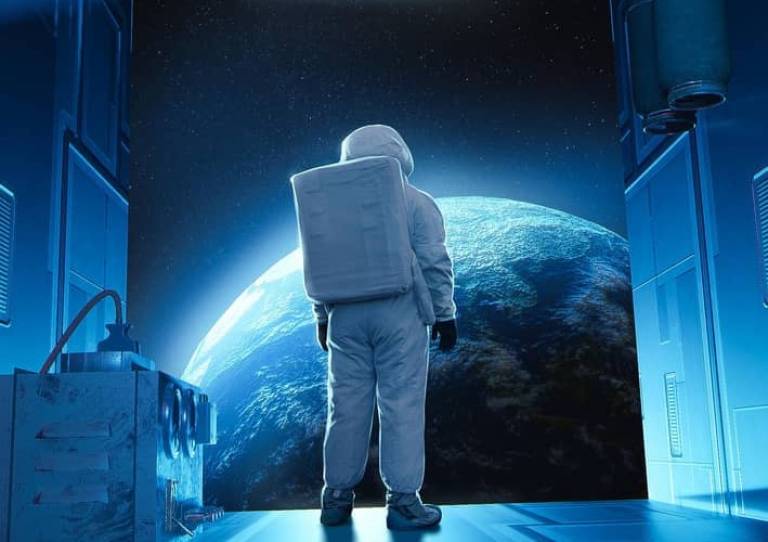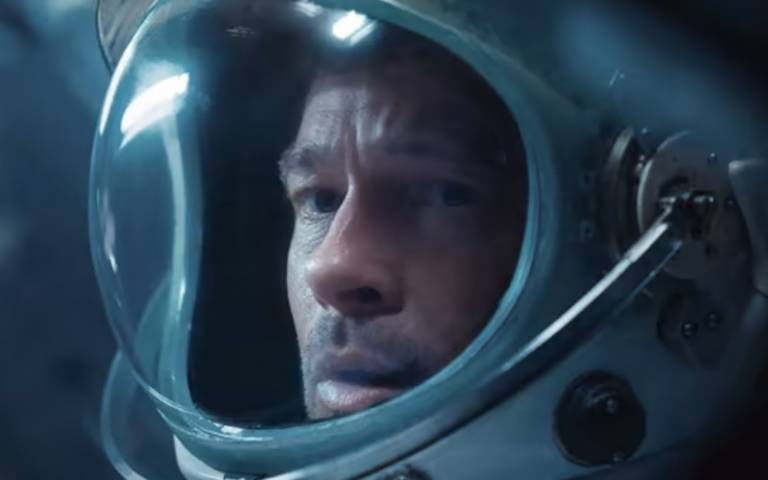Space travel is a lonely business. How can space psychologists make it better?
25 January 2023
As NASA and ESA believe we will set sail for Mars in the near future, understanding human behaviour in adverse conditions becomes all the more important. UCL Student Journalism Scheme student Karthik Vinod finds out more.

Everyone deals with isolation from time to time, with some coping with it better than others. Accessing mental health help is a challenge for many, even when we are surrounded by people. In this unsparing London winter, colder and more indifferent every passing day, we need a way to keep ourselves content. Whether that's to phone a friend or family, or arrange to spend time with them, staying upbeat while isolated is necessary.
However, imagine you’re so far away from everyone that you can’t even make a phone call. Imagine you’re in the cold vastness of outer space …
There have been countless space operas that have dealt with loneliness in some form or other, such as Interstellar (2014) and The Martian (2015), which involve astronauts either attempting to escape a dying earth, or being stranded alone on Mars. The 2019 film Ad Astra, for instance, has a melancholic character (played by Brad Pitt) take a 90-day journey to Neptune and back.
Ad Astra’s director James Gray conceived of a world where NASA was interested in recruiting astronaut candidates with schizoid personality disorder. Brad Pitt’s character is depicted as schizoid, and also suffers from depression, and is enlisted on a mission to find his astronaut father who abandoned him when he was a teenager. Of course, it’s just a movie, and NASA or the ESA never send astronauts into space alone, let alone one who might be dealing with mental health issues. It’s vital that astronauts can handle conflicts and communicate well.
 Astronauts are extremely well-trained both physically and mentally to handle any challenges they might face in space. “They have a rigorous work ethic, they’re extremely perceptive and have meticulous attention to detail … essentially, they’re polymaths,” says Dr. Iya Whiteley, a renowned space psychologist, and Director at UCL’s Centre for Space Medicine.
Astronauts are extremely well-trained both physically and mentally to handle any challenges they might face in space. “They have a rigorous work ethic, they’re extremely perceptive and have meticulous attention to detail … essentially, they’re polymaths,” says Dr. Iya Whiteley, a renowned space psychologist, and Director at UCL’s Centre for Space Medicine.
Nevertheless, Ad Astra does get one thing right about space travel – the absolute coldness and indifference of deep space. Space agencies worry about this and prepare astronauts for it. A crewed mission to Mars can take up to 3 years. It’s one thing to get people there safely, but it’s quite another to ensure someone thrives in a tiny spaceship for those 3 long years to Mars.
Deep space is known to be harsh, with its effects on humans being constantly studied in preparation for future missions. Imagine you’re an astronaut heading for Mars. As every month goes by, the earth gets smaller, until all you see outside your window is the pitch blackness of space and probably your own reflection in the window. How does that make you feel? It’s undeniable that you’d feel a bit lonely up there, as months give way to years.
This is just the thing space agencies are preparing astronauts to confront. The last thing NASA or the ESA wants is a crew who can’t guarantee their own safety or that of the mission. Space agencies must intervene before an issue occurs.
Being at close quarters in a tiny compartment shuttling for years on end in deep space means infighting between crew mates, sickness potentially arising, and even deaths potentially needing to be accounted for and prepared for.
It’s the job of space psychologists to develop diagnostic tools and develop strategies to help astronauts face any eventuality. In a Mars mission, astronauts would conduct scientific experiments in conditions like zero-gravity. However, they can experience stress arising from overload, and likely develop fatigue. Unlike being on earth or even the International Space Station (ISS), it’s difficult for psychologists to intervene on a Mars mission, given the time delays involved in two-way communication.

To prevent fatigue from jeopardizing the mission, a ‘Psychological Issue Matrix (or ‘Psy-matrix’), can be used to put together an adequate response to likely threats that astronauts would face. “It’s like a chess game, where one has to anticipate the opponent’s moves to come up with effective solutions,” says Dr. Whiteley.
Dr. Whiteley and Dr. Olga Bogatyreva, a lecturer at the University of Bath, co-authored a book in 2018 which contains technical notes used to advise the European Space Agency (ESA). Their book, the Toolkit for a Space Psychologist, makes suggestions to support astronauts for long-duration missions to the Moon and Mars. It also references strategies that veteran astronauts, merchant navy personnel, submariners, and oil rig workers use to cope with loneliness and stress.
For instance, people living in extreme conditions should take care to maintain their circadian rhythm. It’s also something we can all bear in mind in this chilly winter. “Minimal exposure to light affects melatonin production (the hormone regulating our sleep-wake cycle),” says Dr. Whiteley. Apart from exacerbating psychological effects such as loneliness and stress, this can increase the chances of developing physiological diseases.
So how do we handle the loneliness and stress that’s inevitable in life? From tips found in Toolkit for a Space Psychologist, people living in extreme conditions agree we need something to focus on. We need to find purpose and meaning in the activities we pursue. Moreover, social interaction can help distract us from persistent or negative thoughts. In this chilly winter, friends or family support can provide us with much-needed morale.
Sure, what motivates us to survive through January isn’t quite the same for astronauts who won’t experience the warmth of friends or family during a 3-year Mars mission. Space travel isn’t all that gloomy. Even the most experienced astronauts won’t turn down a Mars mission. “They are happy to accept the risk,” said Dr. Whiteley. “I know astronauts young and old alike who wouldn’t hesitate to volunteer.”

About the Author:
Karthik Vinod is an MSc Science, Technology and Society student in the Science, Technology and Studies (STS) department at UCL. He did his undergraduate degree in Astrophysics at the University of Manchester, and is part of the inaugural cohort of the Student Journalism Scheme.
 Close
Close

